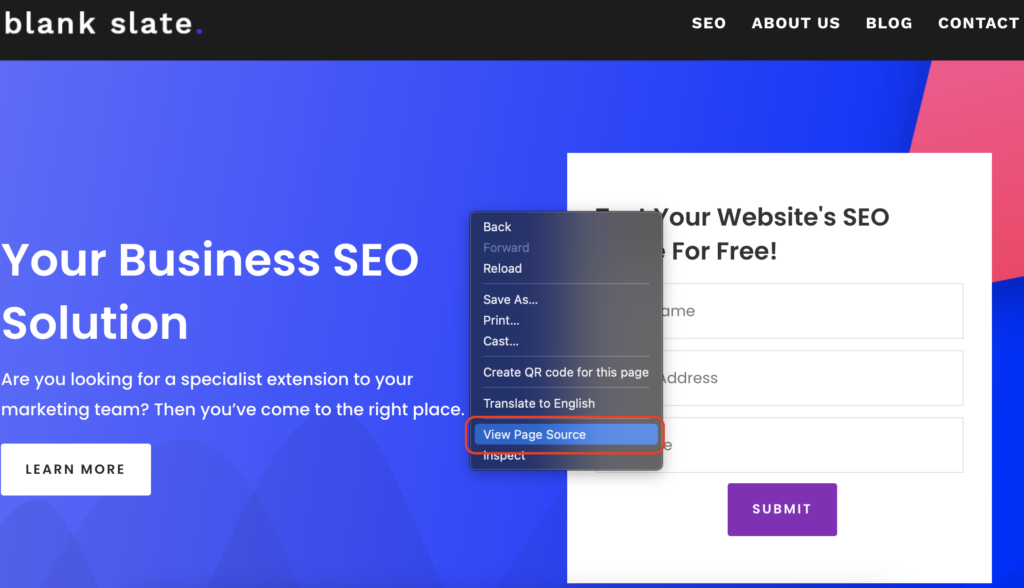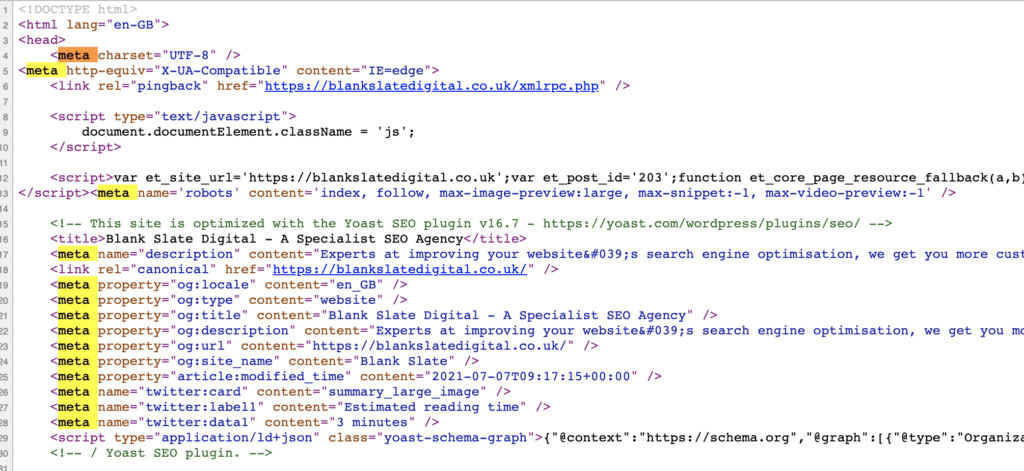These days, the meta keyword tag is not as widely known as it once was in the world of SEO. For years they have not brought anything valuable to search engine optimisation, and now they are barely ever used, and any websites that do still use them are wasting their time!
Nonetheless, it is important to understand what meta keywords are and which Meta tags your website should and shouldn’t use.
SEO newbies tend to be unsure whether or not they need to use the meta keyword tag, simply, the answer is no as they are outdated and are no longer used by search engines.
What are meta keywords?
Meta keyword tags began back in 1995. In the late 90s, web developers and SEO’s alike (if such a thing existed back then!) used the meta keyword tag in the HTML of websites, in order to embed the keyword they wanted that specific web page to rank in search engines for. These keywords enabled search engines to understand the content of a webpage in order to decide what search queries it should rank for.
All meta tags including the keyword tag are located in the HTML source code of a webpage. They are not visible to the visitors of the front-end of the website but are crawlable, so search engines can understand the content of a page.
When meta keywords were used, the technology that search engines were using was not as refined as it is today and so, back in the 90’s meta keywords were incredibly convenient and effective in enabling search engines to rank content.
However, search engines like Google and Bing have not used them for over ten years. That is why a majority of SEO professionals do not use them due to the tag now being unnecessary.
Why meta keywords are dead!
As the internet started to gain popularity, many problems started to arise with the meta keyword tag. This was due to people in the industry exploiting it, using irrelevant meta keywords in order to rank for unrelated or inappropriate keywords in order to gain more website traffic.
As more and more websites began misusing meta keywords, it resulted in unimportant, irrelevant and spammy websites appearing in search results, which is precisely the opposite of what search engines such as Google did not want.
Due of this misuse, search engines began to take limited notice of the meta keywords and as technology developed over the decades, they were phased out, and are now completely pointless.
The Meta keyword tag is dead as it was designed for search engines to rank your website on precisely which keyword you wished to use. As the internet became more and more popular, it became apparent that many people began to misuse this tag, resulting in search engines ultimately dismissing it.
Although the meta keyword tag does no longer hold any purpose or value for SEO, you will not be punished or criticised for including the meta keyword tag within your website, as long as it is related to the content of the page. Meaning there is no need to delete them if your site includes meta keywords unless they are completely irrelevant to the page’s content.
How to check if your website has meta keywords
If you are concerned that your site may contain spammy, irrelevant or incorrect meta keywords, it’s simple, easy and free to check!
The best way to check if your website contains any keywords meta tags is to view the source of a given webpage.
In this example, I will be using the ‘view page source’ feature in Google Chrome.
Simply go onto the page of your website in which you want to check and right-click, then select ‘view page source’.

Then, within the of your website’s code, you can see all the meta tags that your site contains. Look for ‘meta keywords’, if you are struggling to find it, use control+F to search through the source code!
If you cannot find it, then there is nothing to worry about! However, if you spot a meta keywords tag, and the following keywords are not related to the content of the web page, then it is best SEO practice to remove them!

Not sure if your site suffers from incorrect meta keywords? Explore our SEO service and discover how your website can benefit from the power of organic search!


